Spotlight on the 2021 TESOL Teacher of the Year: Khanh-Duc Kuttig
Interview by Ahu Moser
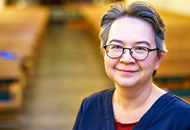
The 2021 TESOL Teacher of the Year, Khanh-Duc Kuttig, has
been teaching EFL since her university days. She has a degree in English,
linguistics and philosophy, as well as an MA in TESOL. She has taught in
Germany and the United Kingdom. Currently based at the University of Siegen,
she is also events coordinator for her local English language teaching
association.
Ahu Moser,
Director of Academic Programming at Literacy Council of Montgomery County,
Maryland, USA, has asked Ms. Kuttig a few questions to help us get to know her.
First and
foremost, I would like to congratulate you on being the TESOL Teacher of the
Year. How are you feeling?
I was really
surprised, as I know the competition is tough. But now that it has sunk in, I
am really, really chuffed. I really don’t know how I got here—it’s just
awesome.
I read that
you had moved to Austria many years ago, and that when you moved, you had some
language challenges. Would you mind telling us how those challenges affected
you and led you to be an English teacher?
I arrived in
Europe in my 20s and one of the first things I did was an intensive German
course in Munich, in Bavaria. I moved to Vienna, Austria a few months later
only to discover that Austrian German and standard German weren’t quite the
same! I used so many words that were unfamiliar to the Austrians and vice
versa! I had to learn the language again, and this time I learnt it on the job.
I worked with kids, who accepted how I spoke—my foreign accent, the vocabulary
unfamiliar to them and my slower responses.
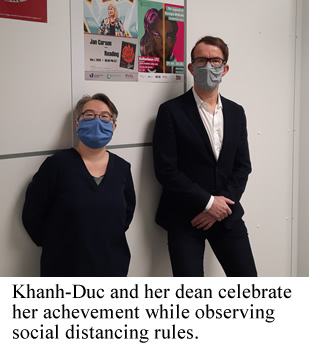 Adults
weren’t always so kind. When I moved to Europe, I had never really worked a
full-time job, and I discovered that I had to learn all this new work-related
lexis that I had never even used in my first language, English. And because I
didn’t know all this vocabulary which they thought I should (I was working with
special needs children), they thought I was only pretending to be a native
speaker of English, and that actually made me embarrassed of my background. I’m
not the traditional White, European, native English speaker. I grew up in
Singapore with a Vietnamese mother and a German father, and people didn’t know
what box to put me in. They found it hard to believe that English was really my
mother tongue, my first language. I was made to feel like an imposter!
Adults
weren’t always so kind. When I moved to Europe, I had never really worked a
full-time job, and I discovered that I had to learn all this new work-related
lexis that I had never even used in my first language, English. And because I
didn’t know all this vocabulary which they thought I should (I was working with
special needs children), they thought I was only pretending to be a native
speaker of English, and that actually made me embarrassed of my background. I’m
not the traditional White, European, native English speaker. I grew up in
Singapore with a Vietnamese mother and a German father, and people didn’t know
what box to put me in. They found it hard to believe that English was really my
mother tongue, my first language. I was made to feel like an imposter!
I
discovered, through learning German, trying to qualify as a care worker, and
discovering all this new language in my own native language, that language was
a lot more complex, and I wanted to do something related to that. Because of
where I was working, I wanted to go into speech therapy. Teaching hadn’t come
into the equation. That came later. But my experience in Austria showed me that
teaching isn’t just about standing in the classroom and talking about grammar
and vocabulary. Learning isn’t just about doing language exercises, either.
It’s about growing in confidence; it’s about knowing that how you speak is
acceptable and that native speakers aren’t encyclopedias of their first
language. It definitely taught me that even as a native speaker of English, I
still have a lot to learn about my own language and how it is used. I still do
quite a bit of reading and preparation for any class I teach!
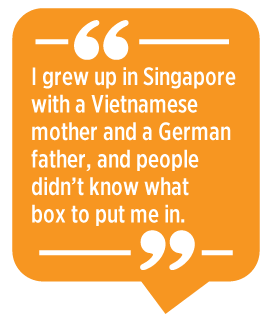 Can you
please tell us your professional background as a teacher?
Can you
please tell us your professional background as a teacher?
I got into
teaching first as a part-time job to finance my studies. I loved it. I did
everything in the early years—I worked for Berlitz, I taught corporate clients
in companies, I was director of studies for a very brief period (I think just a
month!), and, after I graduated, I was an adjunct lecturer at various
universities. I moved to England and that was a career boost for me. I did an
MA in TESOL and from there, I just grew from being a lecturer who taught
everything to finally finding an area of specialization that I really enjoy. I
currently teach English language to BA students at a university in Germany. I
teach in two programs—a BA with numerous combinations that include English as a
subject and a teaching BA with English as a teaching subject. I teach what we
call here, “practical language skills,” so my courses focus on essay writing,
grammar skills, pronunciation and fluency, and classroom language skills for
preservice teachers.
What do you
think are the biggest challenges that novice teachers are facing in the current
virtual teaching work in the midst of the pandemic?
Novice
teachers appreciate the support and mentoring they receive from their schools
or department heads when they start teaching. At present, teachers everywhere
are having to cope on their own, learning on the job, being there for their
students, and that doesn’t leave them much time to do anything else, much less
support novice colleagues. Everyone is simply in survival mode. So, most novice
teachers wouldn’t have been introduced to Zoom, Microsoft Teams, Kahoot! and
Wordwall, for instance. They’re as unprepared as more senior teachers are, but
with the added disadvantage of being in the early stages of their career and
needing more support. I think the biggest challenge is having to deal with a
lot of new things on their own.
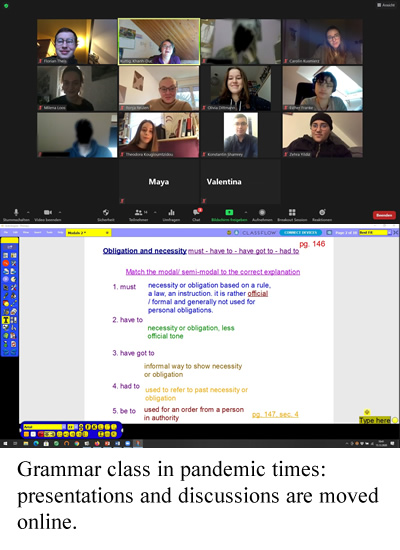
As an adult
ESL teacher whose first language is not English in an English-speaking country,
I would like to hear about one of the latest projects that you are working on
while you are helping refugees who are interested in German schools. Can you
please tell us about this project?
This
project, supported by the German Academic Exchange Service and the Ministry of
Culture and Science of North Rhine-Westphalia (NRW), is currently running in
five universities in NRW. The University of Siegen is one of these. In this
project, qualified and practicing teachers who have fled their homeland have
the opportunity to embark on a 1-year program to qualify as teachers in state
schools in NRW. Many highly qualified migrants often cannot find work in their
new home countries because their diplomas are not recognized, and because of
their lack of language skills. In this program, the candidates improve their
(German) language skills through general language courses in the first phase
and then a specialized language course for teachers in the second phase.
Depending on their teaching subject, they also take courses in our degree
programs. Those with English as a teaching subject will take courses in my
department. As they have been previously qualified, they only take courses
where the content differs substantially from what they would have covered in
their own studies. In some cases, they may not have had the opportunity to take
such a course. My Classroom Language Skills course, for instance, is open to
them. They also take other teaching-related courses and are mentored in the
year they are with us. These courses address cultural issues, or give them an
insight into teaching in a culture that may be very different to theirs. They
also complete a teaching practicum as part of the program. At the end of the
program, if they successfully complete all components, they are qualified to
teach in state schools and should have the same job opportunities as our own
local graduates. The project is currently in its first year.
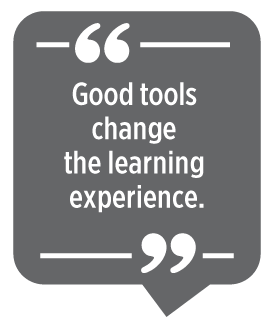 What trends
in English language teaching are you most excited about for the
future?
What trends
in English language teaching are you most excited about for the
future?
One trend I
see is the move towards digital learning and teaching. I am not referring to
apps and tools to be used on their own but in all classrooms, by teachers and
students. There are some really good tools out there which can be used both in
remote teaching as well as in face-to-face classes. Good tools change the
learning experience. I’ve discovered a number of new tools this last year, and
I’m always asking how this tool can support teachers and students in the
physical classroom, not just online. I think education technology is going to
become more and more important and relevant. It’s part of the 21st-century
global skill set: information, media and technology literacy, and working
collaboratively and creatively.
What advice
do you have for novice teachers right now?
It’ll get
better. We will return to our classes someday, it’s just a matter of time. For
now, test things out, try out something different, learn something new. Take
this as an opportunity to develop new skills. But don’t worry if you can’t. Be
kind to yourself. No one before you has ever had to work in a situation like
this.
Ahu Moser is currently the director of academic
programming at Literacy Council of Montgomery County, MD in addition to being a
full-time doctorate student. Ahu has had experience in various roles from being
an ESL Instructor to being a program administrator in grant-funded adult
education programs in MD for the last 17 years. She is the incoming chair for
TESOL International APC.